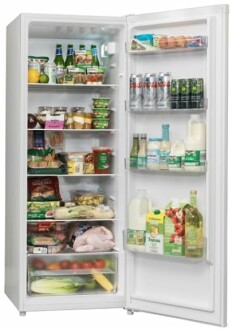
Finding the Right Energy Efficient Heater for Small Spaces
Key Takeaways
- Energy-efficient heaters are crucial for maintaining warmth in small spaces without a high electricity bill.
- When choosing a heater, consider the size of the space, energy consumption, and special features like timers and thermostats.
- Portable and compact models provide flexibility and convenience for small room heating options.
- Look for safety features such as tip-over protection and overheat protection.
- Incorporate user reviews and energy ratings into your decision-making process to ensure reliability and efficiency.
Choosing the right heater for small spaces can be a daunting task, especially with the variety of options available in today's market. Whether you're looking to efficiently heat a bathroom, bedroom, or small office, understanding the essential factors in energy-efficient heating can streamline your buying process and enhance your comfort. This practical guide will help you navigate the key features and considerations when selecting compact energy-efficient heaters.
Understanding Energy Efficiency in Heaters
Energy efficiency is significant for both environmental and cost-saving reasons. A heater's efficiency is typically rated using the following metrics:
| Metric | Description |
|---|---|
| BTU (British Thermal Units) | Measures the heating power; higher BTUs mean more heat output. |
| Energy Star Rating | A label indicating the appliance meets energy efficiency guidelines set by the EPA. |
| Wattage | Indicates power consumption; lower wattage generally results in lower energy bills. |
Types of Energy-Efficient Heaters
There are several types of heaters available that can effectively warm up small spaces. Here's a quick overview of the most common types:
- Convection Heaters: Heat air which then circulates throughout the room.
- Infrared Heaters: Directly heats objects and people rather than the air, which can be energy-efficient in small spaces.
- Radiant Heaters: Uses panels or coils to emit radiant heat, ideal for localized heating.
- Oil-Filled Radiators: Provide long-lasting heat, making them suitable for small spaces.
Features to Consider When Choosing a Heater
When shopping for a heater, consider the following features to determine the best fit for your needs:
Important Features
- Size: Ensure the heater is compact enough for your intended space.
- Thermostat: Helps maintain a consistent temperature and saves energy.
- Timer: Allows you to set operation times, adding convenience and energy savings.
- Safety Features: Look for automatic shut-off, tip-over protection, and cool-touch housing to avoid accidents.
- Noise Level: Consider how loud the heater is, particularly for bedrooms or quiet spaces.
Comparing Popular Energy Efficient Heaters
| Model | Type | Energy Star Rated | BTU | Price Range |
|---|---|---|---|---|
| EcoSmart ECO 27 | Infrared | Yes | 4,500 | Mid |
| DeLonghi HCX9115E | Convection | No | 5,100 | Mid |
| Dr. Infrared Heater Portable Space Heater | Infrared | Yes | 5,200 | High |
| Laguna 230V Oil-Filled Radiator Heater | Oil-Filled | No | 5,100 | Mid |
Product Highlight
English Electric Upright Larder Fridge EEL240H
This 242-litre energy-efficient fridge offers ample space and low frost technology, perfect for families seeking efficiency and convenience.
Learn MoreFAQs on Energy Efficient Heaters
What size heater do I need for my small room?
The size of the heater you need depends on the room's BTUs and its square footage. Generally, you can calculate required BTUs by multiplying the room's size in square feet by 20 BTU.
Are energy efficient heaters worth the investment?
Absolutely! Although they might have a higher upfront cost, energy-efficient heaters save on energy bills in the long run, promoting sustainability and cost-effectiveness.
How can I ensure my heater is safe?
Look for models with safety certifications and features such as tip-over protection, automatic shut-off, and cool-touch exteriors to minimize hazards.
Conclusion
Choosing the right energy-efficient heater for small spaces combines understanding your heating needs with assessing the available options in the market. By considering factors such as size, energy metrics, and essential features, you can find a heater that meets your needs without overspending on energy costs. For further guidance, check out our resource on Energy-efficient water heaters and maximize your home's energy savings.
